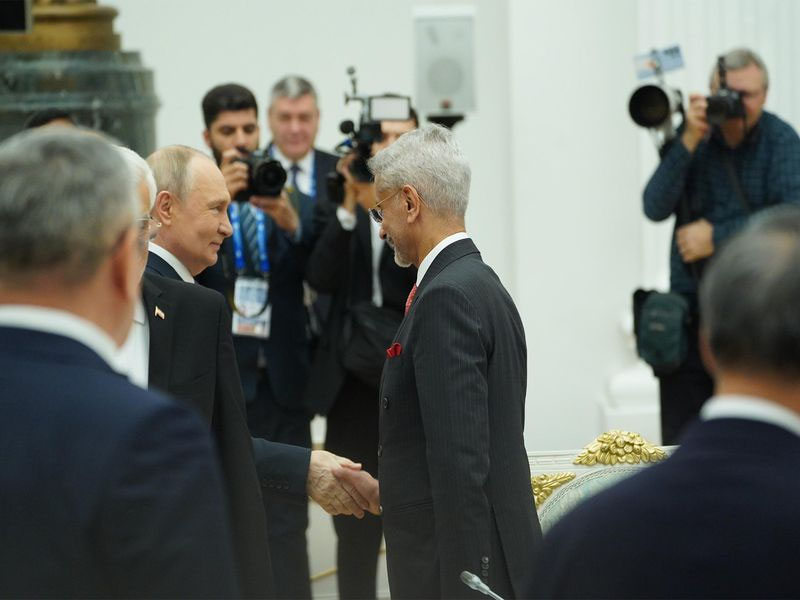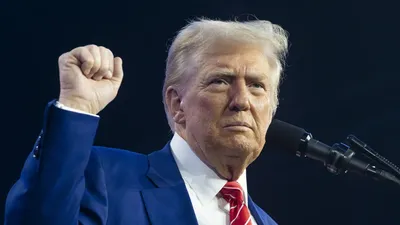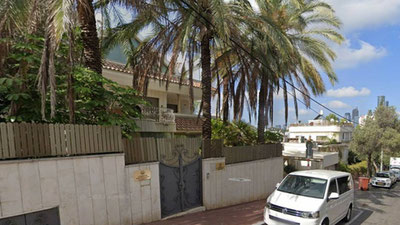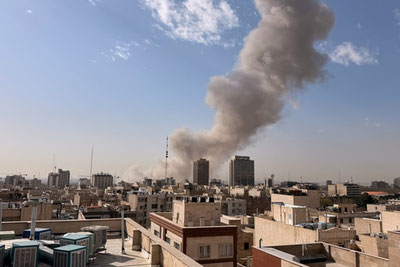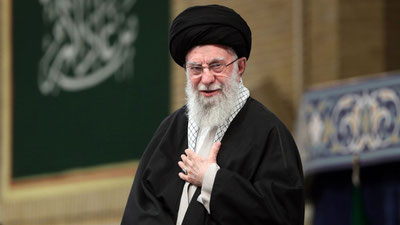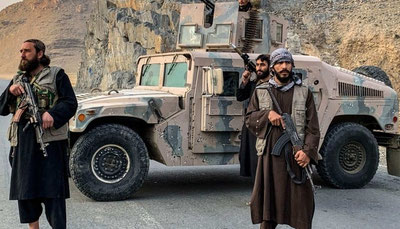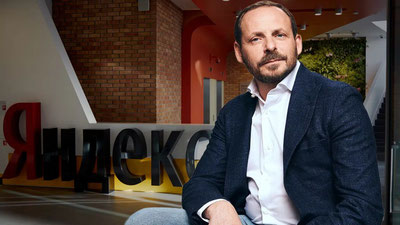External Affairs Minister S Jaishankar on Tuesday met Russian President Vladimir Putin along with other heads of Shanghai Cooperation Organisation (SCO) delegations, using his address at the SCO Council of Heads of Government meeting to deliver a strong message on terrorism, global economic instability and the need for organisational reform.
“Called on President Putin along with other Heads of SCO Delegations this afternoon,” Jaishankar said in a post on X.
During his address, the EAM reiterated India’s uncompromising stance on terrorism, stressing that there can be “no justification, no looking away and no whitewashing” of terror in any form. He said the SCO must uphold its founding mandate of countering terrorism, separatism and extremism.
“We must never forget that the SCO was founded to combat the three evils of terrorism, separatism and extremism… It is imperative that the world displays zero tolerance towards terrorism in all its forms and manifestations,” he said. “As India has demonstrated, we have the right to defend our people against terrorism and will exercise it.”
His remarks come amid heightened concerns over recent terror incidents, including the April 22 attack in Jammu and Kashmir’s Pahalgam that killed 26 civilians, and the November 10 car blast near Delhi’s Red Fort that left at least 15 dead. The Union Cabinet later confirmed the Delhi blast as a “terror incident”.
Jaishankar also pushed for SCO reforms, calling for greater flexibility and modernisation within the organisation. He urged member states to prioritise the long-pending decision to make English an official language of the grouping, which currently uses only Russian and Chinese.
“As the organisation becomes more diverse, the SCO must be more flexible and more adaptable,” he said, citing India’s initiatives including the SCO Special Working Group on Startups and Innovation and the SCO Startup Forum.
On economic issues, the EAM warned that the global environment remains “particularly uncertain and volatile”, noting that supply risks have intensified amid demand-side pressures. He said countries must urgently de-risk and diversify supply chains through wider economic linkages that remain fair, transparent and equitable. He also referenced India’s efforts to conclude free trade arrangements with several SCO partners.
Touching on cultural and humanitarian cooperation, Jaishankar said India’s civilisational ties with the SCO region underpin its belief in deeper people-to-people engagement. He highlighted India’s exhibition of Buddhist relics abroad and offered heritage conservation expertise to Central Asian nations. He also recalled India’s humanitarian outreach—ranging from pandemic-era medical supplies to disaster relief in Afghanistan.
On the sidelines of the summit, Jaishankar said he had brief interactions with Mongolia’s Prime Minister Gombojavyn Zandanshatar and Qatar’s Prime Minister and Foreign Minister Sheikh Mohammed bin Abdulrahman Al Thani. He also thanked Russian Prime Minister Mikhail Mishustin for hosting the meeting, appreciating the “hospitality and warmth of welcome”.
The 24th meeting of the SCO Council of Heads of Government was held in Moscow on November 17–18. Along with India, the SCO’s 10 member states include Belarus, China, Iran, Kazakhstan, Kyrgyzstan, Pakistan, Russia, Tajikistan and Uzbekistan. India has been an SCO member since 2017, after serving as an Observer since 2005.
